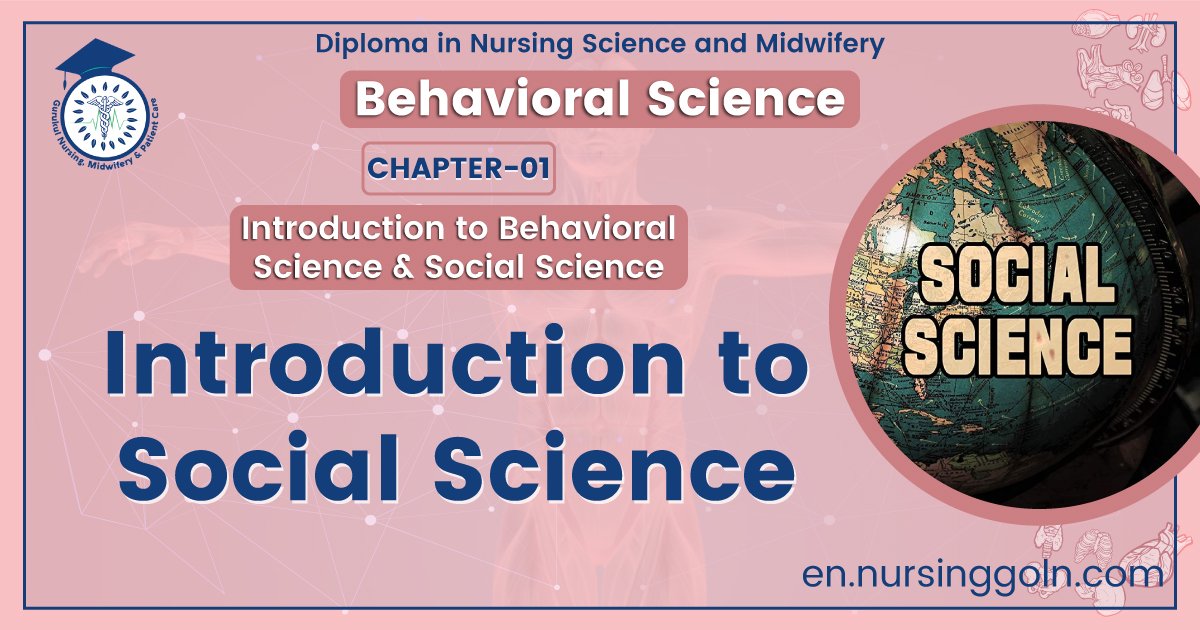Introduction to Social Science – Behavioral sciences explore the cognitive processes within organisms and the behavioral interactions between organisms in the natural world. It involves the systematic analysis and investigation of human and animal behavior through the study of the past, controlled and naturalistic observation of the present and disciplined scientific experimentation and modeling.
It attempts to accomplish legitimate, objective conclusions through rigorous formulations and observation. Generally, behavior science deals primarily with human action and often seeks to generalize about human behavior as it relates to society.
Introduction to Social Science
Social Science is the study of the characteristics, changes, causes and consequences of human behavior in groups. It provides an understanding of the structure and dynamics of social systems from small interactions to entire societies and world systems. Students are trained to evaluate the effects of gender, ethnic background, social class, religion, and community on an individual or group.
The sociological perspective is crucial for success in today’s multicultural and multinational work environments. Thus, a background in social -science is valuable preparation for careers in almost any modern organizational setting.
Social science tells us about the world beyond our immediate experience, and can help explain how our own society works – from the causes of unemployment or what helps economic growth, to how and why people vote, or what makes people happy.

Definition of Social Science
According to Young and Mack,
“By Social science we mean those bodies of knowledge complied through the use of scientific method which deal with the forms and contents of man’s interaction”.
Example: History, Political science, Economics, Sociology, Anthropology, Psychology etc.
Or
According to Ian Robertson
The term social science refers to “A related group of discipline that study various aspects of human behavior”
- Sociology,
- Economics,
- Political science,
- Psychology,
- Anthropology are the important social- science.
Or
Social science is a scholarly or scientific discipline that deals with such study, generally regarded as including sociology, psychology, anthropology, economics, political science, and history.

Significance/ Importance of Social Science:
- Social science is involved everywhere starting from the healthcare sector to the business world. It also contributes to social welfare, formulation of theories, and development of methodology, social planning, prediction, and control.
- Social scientists are involved with solving many of the world’s biggest issues like cyber security, finding a cause of various new diseases, and evolving new strategies for defense challenges faced by the countries.
- Various countries also take help from social researchers in order to deal with the day-to-day challenges faced by them. If we consider the field of medicine, social scientists work closely with different organizations. For finding the cause of any new disease, studying the environmental conditions is equally important as studying the cause and pathogen responsible for the disease.
- Social science is also in great demand in the business world, specifically in the aviation industry. They help the companies to understand their customers well by providing them information about the travel patterns, use of services, etc.
- Social science research can help the industries in gaining customer satisfaction by giving them useful insights into customer behaviors. This can lead to business growth and higher profitability of the firms.
Branches/Boundaries of Social Science:
- Sociology
- Information Science
- History
- Social geography
- Political economyndi
- Anthropology
- Business studies
- Communication studies
- Criminology
- Demography
- Development studies
- Economics
- Education
- Linguistics
- Media studies
- Methodology
- Philosophy
- Political science
- Psychology
- Public administration
- Legal Management
- Paralegal studies
- International studies
- Library Science
- Information Science
- Geography
- History
- Industrial relations
- Law
